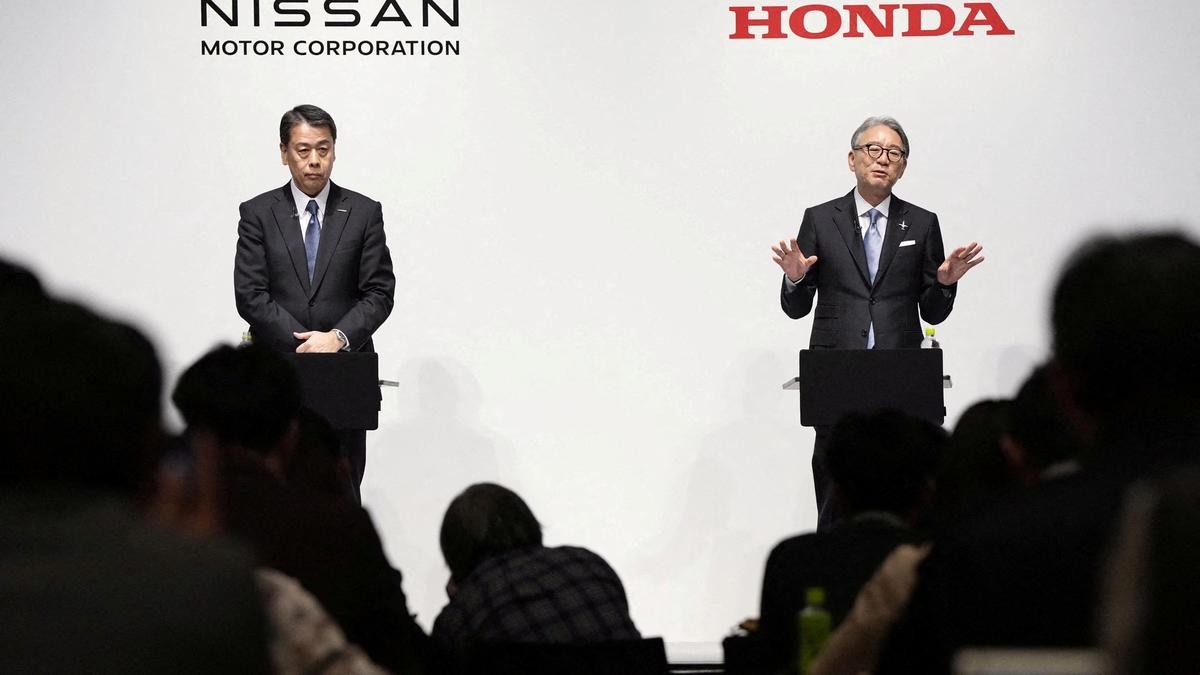Honda and Nissan in Merger Talks to Compete in the EV Market

Japanese automotive giants Honda and Nissan are reportedly engaged in preliminary discussions about a potential merger, according to media outlets including the Nikkei and the Financial Times. This strategic move aims to strengthen their position in the competitive electric vehicle (EV) market, particularly against industry leaders like Tesla and rising Chinese EV manufacturers.
In March, the two companies announced plans to explore a strategic partnership on EVs. A Honda spokesperson confirmed that a merger is one of several possibilities under discussion but emphasized that no decisions have been finalized. Nissan, meanwhile, echoed this stance, stating that the companies are "exploring various possibilities for future collaboration, leveraging each other's strengths."
Merger Plans and Strategic Vision
Reports suggest that Honda and Nissan are considering operating under a single holding company, with plans to sign a memorandum of understanding for the potential new entity. Mitsubishi Motors, where Nissan is the largest shareholder, may also be brought under the holding company, creating one of the world’s largest auto groups.
This potential tie-up comes at a time when both Honda and Nissan are doubling down on electric vehicle development. Honda has committed to investing $65 billion in EVs by 2030, aiming for 100% EV sales by 2040. Nissan, on the other hand, plans to launch 16 electrified models out of 30 new vehicles in the next three years.
Challenges and Opportunities in the EV Market
The merger talks underscore the challenges Japanese automakers face in the EV space. While China has surged ahead as the world's largest vehicle exporter, driven by its EV dominance, Japanese firms have historically focused on hybrid technology. In 2022, only 1.7% of cars sold in Japan were electric, compared to 15% in Western Europe and 5.3% in the United States.
At the same time, consumer concerns over high costs, range limitations, and inadequate charging infrastructure have led to a slowdown in EV adoption globally. Hybrid vehicles, combining battery power with internal combustion engines, remain popular in Japan, accounting for 40% of car sales in 2022.
Market Reactions
The announcement of the preliminary talks sparked significant market movements. Nissan’s shares surged by over 20% in early trading, while Honda’s dipped slightly by 1%. Mitsubishi Motors also saw a 14% rise in its stock value, reflecting investor optimism about the potential merger’s impact.
A Step Toward Industry Transformation
If the merger proceeds, it could mark a transformative moment for the Japanese auto industry, enhancing its global competitiveness in the rapidly evolving EV market. For now, both Honda and Nissan have reiterated their commitment to leveraging each other’s strengths and collaborating on future opportunities. Further updates are expected as discussions progress.




















तपाईको प्रतिक्रिया दिनुहोस